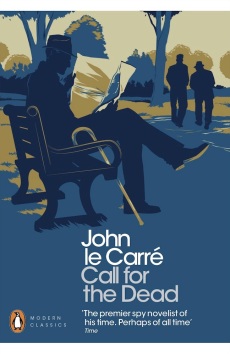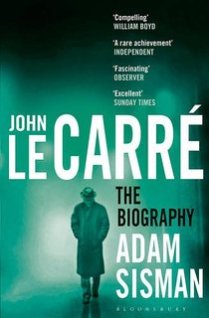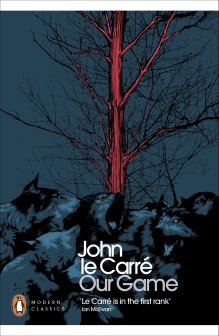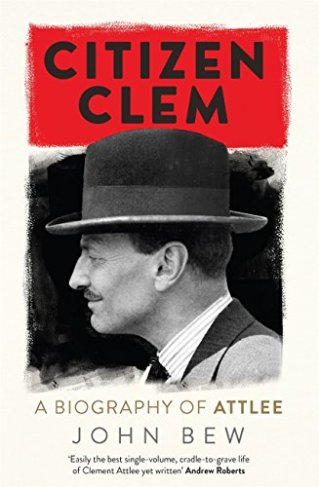 My rating: ★★★★☆
My rating: ★★★★☆
Warning this review contains some plot spoilers.
The Basics: An expert interpreter of the indigenous languages of Eastern Congo, Bruno Salvador, is recruited to help facilitate a meeting of the various warring camps in the region. However, whilst eaves dropping on the meeting’s fringes, Salvador hears troubling plans which tears him between his dual loyalties to his African homeland and the British intelligence services he proudly serves.
In-depth: Aside from John le Carré’s most famous books, based on the Cold War and it’s spies, there is also a lesser known body of work which are just as able to thrill their readers. The Mission Song is an excellent and central part of this body. It focuses on the profession of language interpreters, who act as “a bridge” between those who otherwise would have little way of communicating. Le Carré’s journey into this profession is through his creation of Bruno Salvador.
Salvador (aka Salvo) is a languages expert of Central Africa, including several “dying” languages, whose skills garner profitable work for British corporations, law firms and eventually its Government.
A physical manifestation of Catholic original sin, Salvo’s father was a Catholic missionary and his mother, an unknown (to him) Congolese woman, gives him a hybrid nature which leads to his racial description by several characters as a “zebra”. This description soon comes to represent Salvo’s central struggle between his loyalties to his romantic childhood homeland of Africa and his adopted home of Europe.
Recruited by the British Government to aid negotiations between several opposing parties from the Eastern Congo, Salvo is dragged into a world of intrigue well beyond his understanding. Flown to an unknown island in the North Sea, with a comic rabble of public schoolboy crusaders, ex British special forces and cockney ‘fixers’, Salvo unwittingly becomes a part of arranging a military coup in Congo.
This aims to install a populist leader for the benefit of the shadowy multinational corporate “Syndicate” which is the organising force behind the negotiations. Vast profits from the many valuable natural resources bestowed on Congo are the motivation, but are loosely masked by high minded promises of the figurehead leader to prioritise all of the Congo’s people’s needs, rather than just it’s elites.
Salvo, and indeed possibly the reader, is initially convinced of the righteousness of this seemingly benevolent mission. It’s most naïve, but gripping defence, is from the chief mercenary tasked with delivering the coup, the wonderful character of Maxie, who monologues the Congo’s bloody history of exploitation:
“Fucked by the Arab slavers, fucked by their fellow Africans, fucked by the United Nations, the CIA, the Christians, the Belgians, the French, the Brits, the Rwandans, the diamond companies, the gold companies, half the world’s carpet-baggers, their own government in Kinshasa and any minute now they’re going to be fucked by the oil companies … Time they had a break, and we’re the boys to give it to ’em.”
However, whilst listening in on the fringes of the bugged meeting, Salvo discovers the true corrupt aim. He also hears the torture the Syndicate are prepared to inflict to secure their desired ends. Pushed to his breaking point, Salvo’s instinctive good drives him into the dangerous act of stealing evidence of this planned coup and pitting himself against his original British employers.
From here The Mission Song moves into the usual le Carré race against time and chasing authorities. However, keen to avoid spoiling the book’s entire plot and finale for any potential readers, I will conclude that the characters and story telling devices le Carré uses to get here means The Mission Song is a part of his wider work well worth reading. It is also a superbly paced novel which is easy to race through in a very short space of time and forms one of his several novels based primarily in Africa. Next up for me in this trip is The Constant Gardner.
Thanks for reading and please do leave any comments below.

 A Delicate Truth by John le Carré
A Delicate Truth by John le Carré
 Call for the Dead by John le Carré
Call for the Dead by John le Carré
 John le Carré: The Biography by Adam Sisman
John le Carré: The Biography by Adam Sisman Our Game by John le Carré
Our Game by John le Carré Gorky Park by Martin Cruz Smith
Gorky Park by Martin Cruz Smith
 The Silent Deep: The Royal Navy Submarine Service since 1945 – Peter Hennessy & James Jinks
The Silent Deep: The Royal Navy Submarine Service since 1945 – Peter Hennessy & James Jinks